Ladies and gentlemen, America is facing a dire shortage of one of our most precious natural resources. This commodity has fueled our nation’s economy for decades, and may be our single most important export to the rest of the world. Many believed our reserves were endless, but now it can no longer be denied: America is running out of movie stars.
By “movie stars,” I do not mean “people who star in movies.” A lot of people do this. Brendan Fraser does this all the time, and he is definitely not the kind of movie star I’m talking about. I mean the A-listers. The megastars. The living legends. The people with their handprints outside Mann’s Chinese Theater. In the 70s, De Niro, Pacino, Hoffman, and Nicholson were the big guns. In the 80s, it was Cruise, Stallone, and Schwarzenegger. The 90s gave us Will Smith, Clooney, and DiCaprio. The summer of 2000 was a coronation for Hugh Jackman (in X-Men) and Russell Crowe (in Gladiator).
But in the last 10 years, has Hollywood produced any new A-list talent? The Ulmer Scale is an anual ranking of the most bankable actors. Their most recent top 10 list was: Will Smith, Johnny Depp, Brad Pitt, Tom Hanks, George Clooney, Will Ferrell, Reese Witherspoon, Nicholas Cage, Leonardo DiCaprio, and Russell Crowe. With the exceptions of Ferrell and Witherspoon (who I’m not buying as the #1 leading lady, by the way), all of these people were huge stars more than a decade ago. Hollywood is standing still.
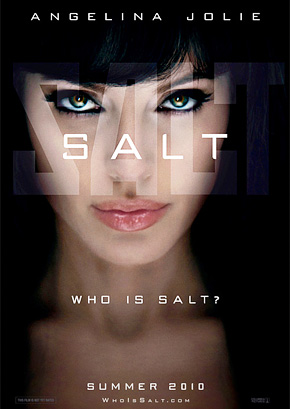
Hey Shana, could this be an actual honest-to-God example of a big budget Hollywood movie starring a strong female character? Has the whole world gone topsy turvy?
(By the way, you might notice I’m only discussing men in this article. That’s because there are significantly fewer female movie stars that can really open a movie on their own. Julia Roberts used to, Jodie Foster used to. Meryl Streep is the greatest artistic success of our generation, but she’s not a guaranteed box office draw. Angelina Jolie may be a different story. This summer, she’s starring in Salt, a blockbuster with no leading man joining her on the poster, for which she’s making a reported $20 million. But I digress.)
It’s not that Hollywood hasn’t been trying to make movie stars. Look at Gerard Butler. After the huge success of 300, every producer wanted a piece of him. They put him in Gamer, a hardcore action flick. It grossed a paltry $20 million. They put him in Law Abiding Citizen alongside Academy Award-winner Jamie Foxx. It barely made $70 million. They put him in a romantic comedy with Jennifer Aniston, and it underperformed.
It’s been that way all through the 2000s: Hollywood thinks it’s found a winner, but audiences think differently. In 2002-04, it was basically impossible to make a movie without casting Colin Farrell. Even if you didn’t recall hiring him, he would just show up on set and start acting. There was Minority Report, Phone Booth, Daredevil, and most memorably (to me), S.W.A.T. But the delightful train wreck that was Alexander took some of the wind out of his sails. Now he sticks mainly to indie films like In Bruges and Crazy Heart. The guy has a perfectly healthy career, but he’s not the next George Clooney.
Shia LaBeouf was Hollywood’s crown prince for a while. He got to fence Cate Blanchett in Indiana Jones and the Kingdom of the Crystal Skull, but he was a distant second banana to Harrison Ford (a real movie star). In the Transformers movies, he was a distant second banana to a large bank of supercomputers rendering robots and explosions. He finally got his chance to anchor a movie with Eagle Eye. It cost $80 million, and grossed barely over $100 million domestically. However, my fellow Overthinker Mr. Wrather points out that it made another $80 million internationally. Factor in the DVD sales, and the kid didn’t do too bad after all. Shia may yet prove to be the real thing; he’s starring in Oliver Stone’s hotly anticipated Wall Street: Money Never Sleeps. But he’s a long way from A-list in my book.
Sam Worthington is Hollywood’s go-to guy for blockbusters. He recently starred in the biggest movie of all time, which should theoretically make him a huge movie star. But he spent Avatar literally buried under special effects, and his acting is one of the least memorable parts of the movie. (Compare that to Titanic, which instantly made Leo one of the biggest names in town.) Same thing with Clash of the Titans; even the few people who liked the movie weren’t there to see Sam Worthington. He’s on his way to a brilliant career as the bland human in a CGI sandwich.
Finally, Robert Pattinson is a bonafide sensation with the Tiger Beat crowd (and their moms) but I wouldn’t bet on him having any career beyond Twilight. Remember Me came and went, unremembered by any of his so-called fans.
But our lack of new movie stars is only half the story. Our old movie stars are rapidly losing their lustre. Now of course, everybody has the occasional flop. Ever hear of a movie called The Conqueror? It stars the immortal John Wayne as… Genghis Khan. This was not only a critical and financial disaster, but because it was shot near a nuclear testing zone, about a third of the cast and crew developed cancer within 25 years. But John Wayne’s career survived The Conqueror (even if he did, in fact, die of cancer). Moral: one bomb doesn’t mean you’re not a star. (Other Moral: don’t make movies near a nuclear testing zone.)
Still, the last few years have seen almost all our biggest movie stars simultaneously lose their mojo, and it’s unclear whether they’re going to get it back. Last summer, the New York Times wrote about all the famous names that were striking out at the box office:
[Will] Ferrell bombed in “Land of the Lost,” a $100 million comedy that sold only $49 million in tickets in North America. [Julia] Roberts missed with “Duplicity,” a $60 million thriller that attracted $40.6 million. “Angels & Demons” ([Tom] Hanks) was soft. The same for “The Taking of Pelham 1 2 3” ([Denzel] Washington and [John] Travolta). “Imagine That,” starring [Eddie] Murphy, was such a disaster that Paramount Pictures had to take a write-down. [Adam] Sandler? His “Funny People” limped out of the gate and then collapsed. Some of these may simply have not been very good, but an A-list star is supposed to overcome that.
The people at the top of that Ulmer Scale are there because they are supposed to have the Midas touch at the box office. But take a look at the top-grossing films released in 2009:
1. Avatar $742M
2. Transformers: Revenge of the Fallen $402M
3. Harry Potter and the Half-Blood Prince $302M
4. New Moon $297M
5. Up $293M
6. The Hangover $277M
7. Star Trek $258M
8. The Blind Side $255M
9. Alvin and the Chipmunks: The Squeakquel $219M
10. Sherlock Holmes $209
Of these 10, only The Blind Side and Sherlock Holmes featured A-list talent (and Sandra Bullock and Robert Downey Jr. barely qualify as A-list. Downey certainly wouldn’t have before Iron Man). For the most part, people are going to movies to see the special effects or take in the latest chapter of a franchise they already know and love. They could care less about movie stars. Matt Damon’s Green Zone has grossed only $33 million in the past month. That’s a disaster for a film that cost $100 million.
There are many theories about why the stars are dying. Some say that with high ticket prices, audiences are being more discerning about what they watch. Moviegoers are relying more and more on word of mouth to figure out what’s worth the money. That’s why a movie like District 9, starring an actor whose name no one can pronounce, can gross just as much as Valentine’s Day, starring literally every actor in the world.

This teaser poster was in theaters well before the movie had a cast (or apparently, a solid release date).
And with studios focused more and more on developing “properties” like superhero films, literary adaptations, and updates of old TV shows, big names might actually be a liability. If what you’re selling is Batman, casting Tom Cruise as Batman works against you. Your movie instantly becomes a Tom Cruise movie, not a Batman movie. If you’re making a movie that has a built-in audience regardless of who you cast (like Harry Potter, Star Trek, or Twilight) you want to cast someone likable, but without a whole career of baggage. It used to be that to make a blockbuster, studios needed the biggest names. Now, they’d rather have a well-known property and a fresh name.
Now is a good time to mention that the fall of the movie stars is not necessarily a bad thing. Bradley Cooper was the biggest name in The Hangover, and it grossed almost $280 million. That is more than five times what Land of the Lost made. For decades, Hollywood’s been producing crap, and we kept buying it because the crap starred famous people. Suddenly, there are signs that audiences aren’t going to fall for it anymore. This is fantastic news.
However.
If people stop caring about the cast of their movies, what will happen to the movie stars? Will any studio pay $20 million to an actor when they could pay $5 million to a less popular actor, see virtually no change in their grosses, and save themselves the hassle of dealing with a world-class ego? When movie stars become less important, the big roles will get spread around more, and actors won’t acquire the same mythic status that they used to have. I can forsee a future with no A-list, only a sprawling B-list of actors who are popular, but not Brad Pitt popular. Nobody will achieve true movie star status, because as soon an actor gets too hot, studios move onto someone else. The A-listers we currently have continue to be treated as A-listers, even though their famous names long ago stopped guaranteeing hits. The front rows of the Oscars are filled less and less with legends like Jack Nicholson, and more with whoever is hot that year. In other words, the future is Taylor Lautner.
I’m pretty immune to celebrity culture, but A-list movie stars transcend the supermarket tabloids. Whether or not you care for (or watch) the films of Brad Pitt, you know who Brad Pitt is in the popular imagination. He’s Brad Pitt. He’s larger than life. He’s often the punchline of the late night talk shows, but he’s a punchline that everyone in America understands. The A-listers are as close to Greek gods as our country has. If we lose that handful of stars at the top of the food chain, that’s a major hit to our shared culture. Sure, you can make movies without movie stars, but then who are you going to gossip about? Blake Lively? Meh.
Right now, we’re coasting along on the massive movie star reserves we built up during the 90s, and especially the 80s. (The 80s, it is now clear, was Peak Movie Star.) But if we don’t figure out how to create some new movie stars soon, our A-list is going to run dry. We’re the country of Jimmy Stewart, Cary Grant, and Steve McQueen. But it seems we might be living in the twilight of the stars.

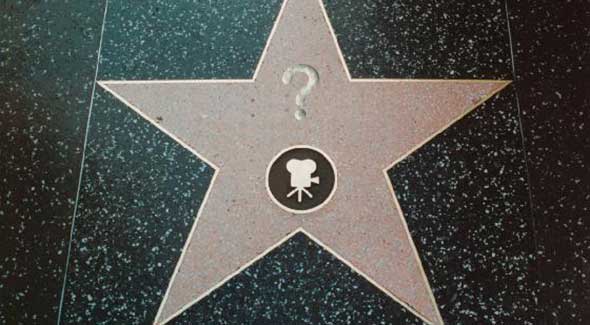
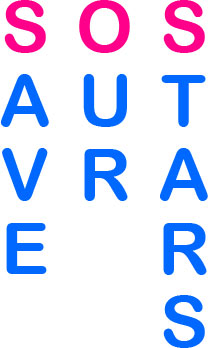
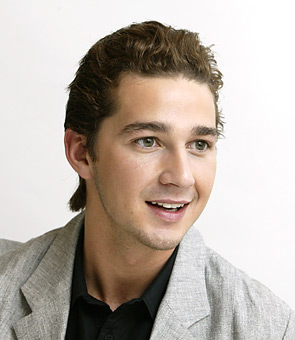
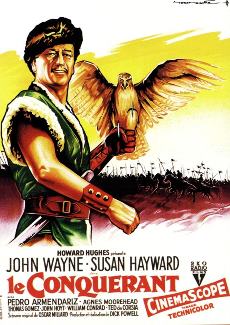

Ryan Reynolds. He’s the biggest recent star by far. Green Lantern will ensure his spot…
or won’t. We’ll see.
Actordämmerung?
When we adapt the article into an opera, that’s what we’ll call it.
If it’s clear to everyone that movie stars don’t carry movies anymore, why do animation studios like Dreamworks keep filling their voice acting slots with famous names instead of real voice actors? For example, why is it important I know that Owen Wilson will be the voice of Marmaduke? Shouldn’t the attraction be, “Hey, look! They made a movie out of Marmaduke”? (Or for the kids who have no idea who Marmaduke is, I guess it’s more, “Look! A talking dog!”)
Or do you think this phenomenon is slowly dying out, too?
@mlawski There are two reason that Dreamworks fills their character roles with film actors as opposed to voice actors is name recognition and perceived talent. The first point is self explanatory. Outside of devoted fans, most people don’t know who prominent voice actors like Steven Blum, Wendee Lee and Yuri Lowenthal are. Animated characters’ voice acting has had a long history of questionable quality (anime in particular. Anyone else remember the Sub vs. Dub wars of the ’90s?) and the public remembers that. So why would a Hollywood studio cast talented and proper voice actors as opposed to REAL actors who may or may not make good voice actors? The public demands it, or at least that’s the perception.
@ Shana – Pixar’s last three movies (Ratatouille, Wall-E, and Up) have been basically star-free. Any recognizable voices certainly aren’t a selling point – more of an Easter egg. Alvin and the Chipmunks is basically the same way. Did you know Alvin’s voice is Justin Long? I WATCHED the movie, and I didn’t know until the end credits. And in all the advertising for How to Train Your Dragon, did the commercials mention Russel Crowe’s name?
I’d say celebrity voices in animated films are icing on the cake for the grownups. NOBODY is going to see Marmaduke just because they’re glad Owen Wilson is feeling a little better. But if the kids beg to see Marmaduke, the involvement of Owen Wilson might make it just palatable enough for the parents. Example: I was probably slightly more willing to watch the Chipmunks because I knew David Cross played a large role, and I have a mild fondness for Jason Lee.
So I’d say that stars do not “carry” animated films (and probably never have, since kids don’t care about who does the voices). But I’m certainly not saying that stars have no use whatsoever.
@Belinkie:
Up was basically based on Ed Asner’s live action stuff–he’s been doing that ‘cranky old man’ shtick since the seventies. Shrek was basically the All Things Scottish guy. In these cases, i don’t necessarily think that the stars were a selling point to the audience, but they were absolutely crucial to creating the characters and storyline, and probably to selling the movie to the producers/studio. And I can see that type of thing sticking around for a while.
One of my favorite examples of voice talent not getting the same recognition as the name is Mark Hamill as Joker in the Animated Series and, more recently Arkham Asylum. When most people hear his name, it becomes “Oh, the guy who played Luke Skywalker” instead of “Yeah, the guy who defined Joker for an entire generation” (or maybe thats just me).
Mark Hamill does not carry the project he is in, but his voice does. I can see this becoming a trend, like associating Sam Worthington with astounding special effects or Gerard Butler with action movies that deviate from the Die Hard/Lethal Weapon premises. Studios will start investing in the brand of an actor and not the actor himself.
@matt the ads for How to Train Your Dragon don’t even have Crowe’s voice in them as far as I can tell.
Very interesting perspective. I had noticed this sort of thing in a vague, passing way, but this makes it pretty clear what’s going on.
I wonder if one aspect of why there haven’t been big name stars is because of a demographic shift in movie-viewers. I don’t know if there has even been one, but since I’ve gotten older, I assume that other movie-goers have, too. (I could easily be wrong, of course!) If so, that would partly explain why the teenagers who squeed over Brad Pitt are still squeeing over him years later.
I think in some ways, it may also be that reviews actually carry more weight with people than before. Thanks maybe to high ticket prices, or maybe just because it’s just easier to find out what a number of critics think. If you read five reviews from major newspapers that all say Actor X is a talentless hack who can’t act his way out of a paper bag, whether he delivers a good performance or not, your perception of it is going to be colored than if five of your friends say “Not the best movie, but I enjoyed it.”
Perhaps audiences are also becoming a bit more educated about what a good actor really is. Sure, we’ll watch Bella wooden her way through Twilight, because at least she’s not as annoying as Bella in the book, but all the while, we KNOW she’s woodening it, not acting it. Sure, Pattison is kind of hot (or Lautner if you swing the other way), but acting ability? Not so much. (Maybe not his fault–I don’t know that acting like a creepy teenager is really all that hard. Hayden Christensen managed it, after all!) But whether he is or not, we don’t see it.
I think that, apart from the wonderfulness of Iron Man on many levels, we saw what RDJr was capable of as an actor. Maybe we hadn’t seen it before. (I sure hadn’t.) But he took me with him to the parties, to the desert, to guilt and rage and fear. I went not because he’s good looking, but because he WAS the character in ways that actors are not always able/willing to do. I saw Sherlock Holmes not because he’s hot, but because I was curious to see if he could do the same thing again. (He did. And I am a die-hard Jeremy Brett fan, so I think that says a lot.)
One other possible problem–drugs. Heath Ledger I think could have and should have been the guy to close out the ’00s, considering he was making some good movies (and a couple of bombs, too, of course), but then he went and died. Certainly not all actors are going to end up with a bad mix of drugs. Certainly not all those that do had that star potential. But for those that do have the potential but find that they suddenly have a lot more money than they could have ever imagined, the temptations would be pretty heavy, especially for those who suffer from various degrees of mental illness. (I certainly can sympathize with Mr. Ledger’s reported bouts of chronic insomnia and a mind that won’t shut up, since that’s one of my own problems.) I won’t say that you have to be crazy to be a good actor, but it is not uncommon for those in the artistic professions to have them (or at least have them more out in the open). I dunno. I worry about the young actors who could develop into amazing starts with charisma and presence, but who face the party culture of Hollywood, often while still in their younger years when they think that they’re immortal and rules don’t apply to them.
Or maybe I’m just depressed today. :(
This article depresses me. In a good way. I have a great fondness for that 1930s Hollywood movie star tradition. I think there’s still a sense that people will see something with an actor they like or remember from something else, but what has diminished is that having an actor like that is a GUARANTEE that a film will do well. The guarantees are diminishing. Audiences are very fickle now, and it kind of connects to the new demographic thing. A younger audience wants someone new to latch on to that they can love and obsess over, but how quickly were the transitions from Radcliffe to Effron to Pattinson (or whoever, just insert a name)?
There’s also a shift in the kinds of movies being made. Studios are trying to change (or pretend they are) and so are actors. There’s no longer the same studio system with stars before they were stars tied to contracts forcing them to make the same kind of film. Audiences don’t want to see the same actors in the same kind of film anymore. Judy Garland, Fred Astaire, Clark Gable, Katharine Hepburn, Jimmy Stewart…as much as I love them, if you look of their body of work you see a LOT of repetition. Nowadays we still let a few people get away with that. Adam Sandler and Drew Barrymore are names that come to mind. We don’t really mind seeing them play the same person with slight variations. But for some reason, that doesn’t cut it anymore.
I would also say that this current environment begs films to be a form of escapism as they were before, but the focus is now on the event film transcending the actors, as you’ve said. Maybe they think we’ll be more involved in a film if the audience stand-ins are more in the line of guides who fade into the background and actually let the audience feel like they’ve entered the world? There certainly seem to be more, panning around, oooh look at the world we created shots than before without people in them. I’m mainly thinking of Harry Potter but I think it works for a lot of films.
As to the voice acting part, I am ridiculously biased towards Disney so I stand by their method of choosing little known talent to voice the parts, excluding maybe Robin Williams. Anyone else familiar with Jodi Benson, Lea Salonga, Liz Callaway, Judy Kuhn, Susan Egan, etc.? Anika Noni Rose, awesome as she is, was really “the other dreamgirl”. I think it detracts from the film to get a famous voice actor unless their voice is so distinctive that you can tell who it is and that adds to your enjoyment, or if they’re just good voice actors regardless of fame.
I know for me personally, though I used to be a HUGE movie buff in the 90s, I have sort of lost interest in movies as a medium in the 00s. My interest has migrated to TV, which seems to me to have had a renaissance in acting and plot and characterization and special effects. It makes me not want to go back to movies, because the development of a relationship (romantic or not) or a plot arc over the course of YEARS on TV seems so much more realistic to me than the development of a relationship or a plot in an hour and a half.
And maybe it’s just me talking, but I feel like the rest of America has kind of felt the same thing–that the storytelling in movies has so many other competitors for our interest that we have higher standards for it, and it hasn’t been meeting them. It hasn’t evolved with the times.
@Inmate – Correction. Russell Crowe is NOT in How to Train Your Dragon. It’s Gerard Butler. Sorry about that, but my point still stands – they’re not using him in the advertising at all.
I think it may have to do with the watering down of the words “star” and “celebrity.” By this I mean that it is easier to expose oneself via Youtube, reality television, etc, and be considered an icon. Many would argue that Snooki and that obsessed Twilight fan are celebrities. Dancing with the Stars? Are any of them even B-list actors, let alone stars? I don’t think so, anyway. Not to say that this is a bad thing, however. Plenty of talented people are finally able to show their abilities to the world. Brandon Hardesty, the gifted young actor who started on Youtube making funny faces, comes to mind.
I think Chelsea may have hit on something there. With the rise of the serial drama on TV, it’s entirely possible that a lot of former movie buffs are more interested in following Lost or Burn Notice or the like for a few years than they are in going to the theatre for an “over and done” plot in an hour and a half. Serial TV certainly has the advantage in allowing a plot or relationship to mature over time and become more engrossing that way.
Blame the audience and hollywood for following the latest trend to maximize their 100 million dollar bets on movies. Its all a gamble, and they do not trust their 100,000,000’s+ on people they don’t know.
Look at Prince of Persia for example. Does Jake look Iranian to you? No? Because hollywood believes their are no bankable Iranian stars who could make an expensive endeavor like the Prince of Persia profitable. And the won’t risk it on a real persian because no persian has had a huge hit in hollywood yet. I think that is a Catch 22. So until a persian (just my example) can make a huge hit or two (probably from a low budget movie turned success like Slumdog) you will not see The Prince of Persia played by a Persian. Or a Last Samurai staring a Japanese, or a last Mohican staring a Native American.
Hmmm, I like the idea that maybe the stars are largely in the TV business these days. One of my favorite shows is Numb3rs which, while possibly not returning, has supplied ample doses of David Krumholtz, who I think may have the sort of qualities that lead to the sort of stars that this article is talking about, but who has been working mostly in television, rather than movies. It is possible that, if the show ends and he decides to go into movies, we could see him taking up the mantle. But is there as much incentive to do a movie for an actor as there is for a TV show? I don’t know enough about the business to know for sure. The appeal of developing a character over time seems like it would be a good draw for some of the best actors, rather than just focusing on the character for a few months and moving on. Or maybe it’s just because that’s what appeals to me more. :)
Three (partly contradictory) points:
* You say: “Nobody will achieve true movie star status, because as soon an actor gets too hot, studios move onto someone else.” This makes little economic sense. Look at it from the hot actor’s point of view: I am a budding big star because I can get $15 mil a picture, but I won’t get a job because I’m too expensive… So logically the pricerange grows narrower. And if a Tom Cruise Batman movie costs only a few million dollars more than a B-list-actor Batman movie you can bet they start making a small size batsuit. If you believe there is something like ‘star power’, it will be sought after, it will just be less expensive.
* Stars are getting older because there’s so much growth at the bottom. How many artist have been launched as ‘the new Madonna’? Countless. It takes more time then before celeb culture, the internet and Disney Channel to separate the wheat from the chaff and one quality any star should have is staying power.
* I’m interested in the idea of tectonic shifts of star biospheres. We’ve seen one before. You name Cruise, Stallone and Schwarzenegger as iconic stars of the 80s but none of them comes close to the supernova of stardom that was Michael Jackson or Madonna. The biggest stars of the 80s were pop stars. Only at the beginning of the nineties the landscape shifted towards movies. (It’s interesting to look at the pop/movie crossovers during that time: in the eighties tv and moviestars made pop singles that sounded really crappy and derivative – i.e. Bruce Willis, David Hasselhoff, Don Johnson – and pop stars were granted creative control over movies – Purple Rain, Truth or Dare, Moonwalker. Later in the nineties it’s the pop stars that act in crappy and derivative movies -Crossroads, Madonna’s whole acting career- and it’s the movie stars that branch out into singing – mostly in musicals though. I’m thinking that The Bodyguard may mark the threshold point of these shift.)
Oh, Belinkie, let me be a little finnicky for a second. Downey, Jr. was an A-list actor a decade-ish ago before the rehab, too. I’m not saying he was at the time right before _Iron Man_, but your wording implied he never had been in the past. This isn’t to say your theory that new talent isn’t emerging is wrong, either. I’m just defending his rep a bit because I know he has a very interesting story that I believe is worth more than a brush-off. Even when he was doing drugs, he was still getting critical acclaim, but yes, _Iron Man_ was his first “blockbuster” film.
Also, that list of 2009 movies includes two films featuring Zoe Saldana as the lead female actress, so maybe she’s emerging as a movie star, or at least something like it, too?
@Shana: I actually *just* watched _Ponyo_ last night, the newest Studio Ghibli film. Tina Fey, Liam Neeson, a Cyrus and a Jonas, Cloris Leechman, Betty White, Cate Blanchett, Matt Damon… LOOONG list of “famous” actors, some with total throwaway parts that seemed like a waste of the celebrity (Matt Damon’s character had, like, four lines, for example). The Studio Ghibli/ Miazaki movies have consistently had famous people as voice actors for the dubs. From _Princess Monanoke having Claire Danes and Gillian Anderson to _Howl’s Moving Castle_ using Christian Bale and Lauren Bacal, I think Disney being the American company making the dubs gives it the same power to draw in and, quite importantly, PAY big names, is a big part of the franchise.
@Riderlon: Those wars are still going on today, as far as I can tell. The anime club at my college actually had people quit over it while I was there. And there is a certain pretentiousness with most of the people I’ve met that insist on watching subs and subs only. It doesn’t count if it’s a dub, never mind if the actors are good or not. They’re like the period Nazis in Ren Faire, freaking out over the smallest things and making it hard for *anybody*, including themselves, to have a good time when, oh my FREAKING GOD, the only copy of _Fushigi Yuugi_ available that week is one of the… DUBS!!!! But anyhoo, my point is, I don’t think that war has stopped, nor do I think it ever really will.
@inmate: F*** YEAH, Mark Hamill as the Joker!!
@Lisa: Like I said to Belinkie, Downey had a career a while ago (and I’d argue he never really *stopped* acting, just lost the star power he had earlier), then went to rehab and had to earn it back. So the drug thing, actually, fits in well- he’s an example of how it can be overcome. Haven’t you seen _Chaplin_? Amazing movie, amazing performance. And it’s from 1992. How about _Chances Are_ (’89)? Netflix or RedBox (if you can) some of his older stuff- he is and, imo, always has been, fantastic- even when he was drugging out.
Fun article Belinkie.
Seems that the last few articles for you have given off quite the feeling of nostalgia.
I was trying to thinking of perhaps some current movie stars. A possible example i can give is the Judd Apatow crowd? As in, there’s been quite a few movies where having the same actors of Paul Rudd, Michael Cera, Jason Segal, etc etc have managed to pull people into the next movie of theirs correct?
Also looking at the list of past movie stars, is it possible that so many of the current blockbusters have been about special effects that the need for big name actors is no longer needed?
I really wonder if it is at all the studios/producers determining these things. Perhaps it is the actors themselves that don’t want to be typecast/associated outside of the ‘brand’ they are making for themselves. Neither Butler nor Crowe would want their names attached to a kids movie, but they did the movie to add some diversity to their resumes.
A Name (someone who is well known but still doesn’t rank very high on the Ulmer Scale e.g. Gerard Butler) has become both a gift and a curse. You can be known for something astounding and wonderful, but then you are expected to follow it with performances equal to or greater than your initial success – a nearly impossible task. This changes when you become an audience stand in or a name associated with a box-office success. With few exceptions, the Names are secondary to the spectacle of the movie itself (in Butler’s case 300). These movies don’t really require a great actor to be a success, but they do require someone who is known for making movies like them successful. Actors are becoming better known as Names than as actors.
I would argue that filmmakers are attempting to cast the perfect person for a part, but the only person who really does this is Tarantino (although the new Marvel movies seem to be making their casting decisions more carefully i.e. Robert Downey Jr. and Edward Norton)
Belinkie, you’ve put to words something I’ve been thinking about for a while.
Nonetheless, I can’t help but wonder whether Robert Pattinson is on the verge of breaking the curse. With his now-official casting as Kurt Cobain in that upcoming biopic, he has the chance to cement his reputation as a legitimate actor and star, and not just “the guy who played Edward Cullen.”
Time will tell.
@Gab:
I’ve actually head that Miyazaki HATED the traditional anime dubbing, and that he insisted on hiring name actors to do his dubbing as soon as he had the clout to do so–which goes back as far as Phil Hartman and a still-a-girl Kirsten Dunst for Kiki’s Delivery Service. Though I have no reproducible evidence for this, so you know.
Did anyone else mention that most “blockbuster movies” these days suck, less because of the acting, more because of the writing? I don’t want to read everyone else’s comments because…to be honest, ya’ll think too much.
I’m not sure about the idea of tying A-list status directly to box office success, but I’ll throw a few names out that I haven’t seen anyone mention (and that seem to contradict the overall thesis).
Actors
Christian Bale
Steve Carrell
James McAvoy
Daniel Craig
Actresses
Kate Winslet
Amy Adams
Scarlett Johansson
Keira Knightley